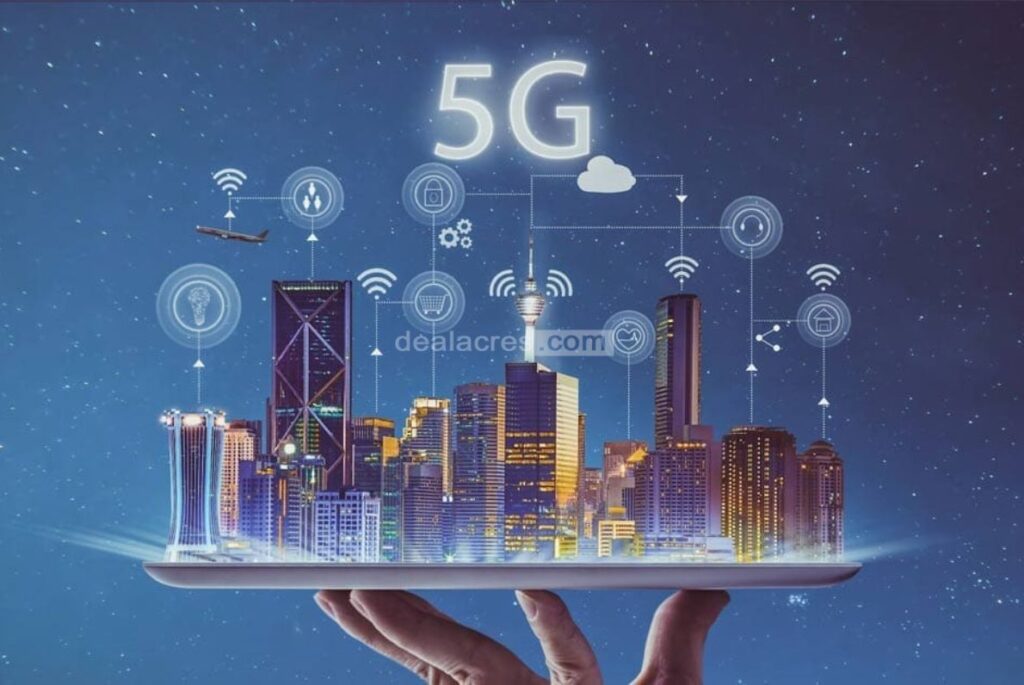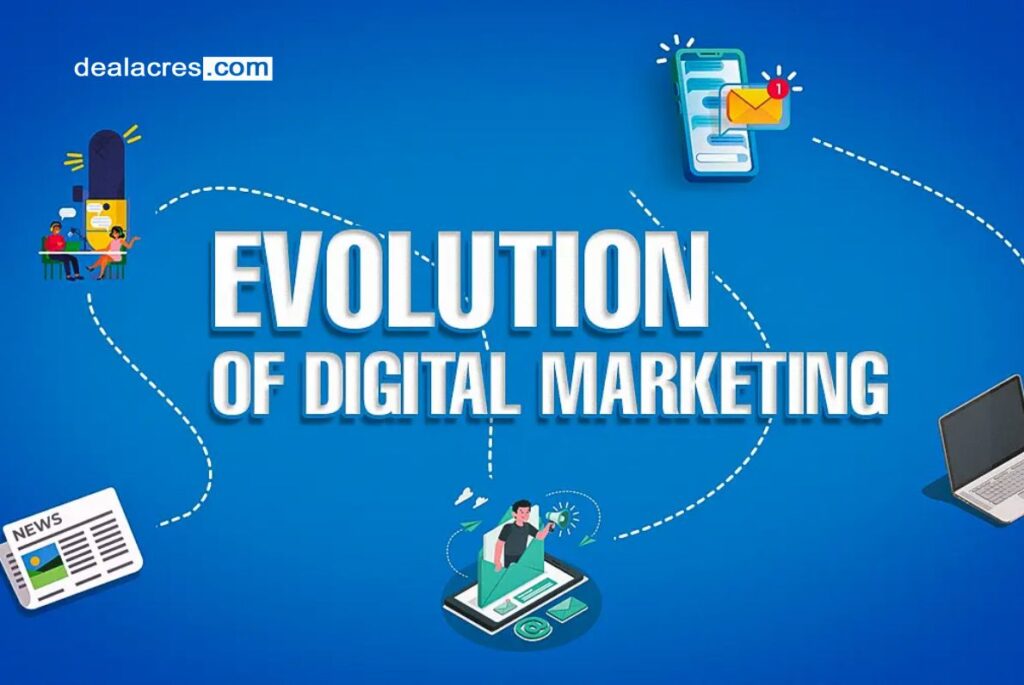In the fast-paced world of evolution of digital marketing, staying ahead of the curve is key to success. As technology continues to advance and consumer behaviors evolve, marketers need to adapt to the latest trends to effectively reach their audiences. In this article, we’ll explore the evolution of digital marketing and highlight the key trends to watch for.

The Birth: evolution of digital marketing
Digital marketing, in its early days, primarily consisted of static websites, banner ads, and email marketing. Marketers were just beginning to explore the vast potential of the internet for promoting products and services. The landscape was relatively simple compared to today’s dynamic and multifaceted evolution of digital marketing ecosystem.
Rise of Social Media Marketing
The emergence of social media platforms like Facebook, Twitter, and Instagram marked a significant shift in digital marketing. Brands now had the opportunity to engage with their audiences in real-time, fostering a sense of community and interactivity. Social media marketing became a powerful tool for building brand awareness and connecting with customers on a personal level.
Mobile Revolution
The increasing use of smartphones ushered in a new era of evolution of digital marketing. Mobile optimization became crucial as users started accessing information, shopping, and engaging with content on their mobile devices. Mobile apps, responsive websites, and SMS marketing became essential components of successful digital strategies.
Video content Dominance
Video content gained immense popularity as internet speeds improved and platforms like YouTube became go-to sources for entertainment and information. Marketers quickly realized the impact of video in conveying messages effectively. Platforms expanded their video features, and live streaming became a powerful tool for real-time engagement.
Search Engine Optimization (SEO) Evolution
Search engine optimization continually refined their algorithms, making SEO an ever-evolving field. Marketers had to adapt to changing ranking factors, including the importance of quality content, user experience, and mobile-friendliness. Voice search also emerged as a significant trend, prompting marketers to optimize for more conversational queries.
Artificial Intelligence (AI) and Machine Learning
The integration of AI and machine learning into digital marketing processes revolutionized efficiency and personalization. AI algorithms enabled better targeting, personalized recommendations, and predictive analytics. Chatbots powered by AI became prevalent, providing instant customer support and improving user experience.
Influencer Marketing
Influencer marketing rose to prominence as consumers sought authenticity in brand interactions. Collaborating with influencers allowed brands to reach niche audiences and build credibility. Influencers became powerful advocates, and their recommendations carried significant weight in consumer decision-making.
Ephemeral Content and Stories
The popularity of ephemeral content on platforms like Snapchat and Instagram Stories transformed how brands communicated. The temporary nature of these posts created a sense of urgency and exclusivity, encouraging real-time engagement. Brands began incorporating ephemeral content into their strategies to connect with audiences in the moment.

Personalization and Customer Experience
Consumers increasingly demanded personalized experiences, prompting marketers to invest in data-driven strategies. Personalized email campaigns, tailored recommendations, and dynamic content became standard practices. The focus shifted from mass communication to building individual relationships with customers.
Privacy Concerns and Data Protection
With the rise of evolution of digital marketing, concerns about privacy and data protection came to the forefront. Stringent regulations like GDPR and CCPA were implemented to ensure transparency and protect user data. Marketers had to reassess their data practices and prioritize ethical and responsible use of consumer information.
Emerging Trends to Watch
As we look ahead, several trends are shaping the future of digital marketing:
- Augmented Reality (AR) and Virtual Reality (VR)
AR and VR technologies are becoming more accessible, offering immersive experiences for users. Marketers can leverage these technologies to create interactive and engaging campaigns, allowing consumers to experience products and services in innovative ways.
- Voice Search Optimization
With the growing popularity of voice-activated devices, optimizing for voice search is crucial. Marketers need to adapt their SEO strategies to accommodate natural language queries and provide concise, relevant answers.
- Interactive Content
Interactive content, such as quizzes, polls, and interactive infographics, enhances user engagement. Brands are incorporating more interactive elements into their content strategies to captivate audiences and encourage participation.
- E-commerce Integration with Social Media
Social media platforms are increasingly integrating e-commerce features, allowing users to shop directly from their favorite platforms. Marketers can take advantage of these features to streamline the customer journey and drive sales.
- Sustainability and Social Responsibility
Consumers are placing a higher emphasis on sustainability and social responsibility. Brands that align with ethical values and demonstrate a commitment to environmental and social issues are gaining favor. Sustainability-focused marketing is becoming a significant differentiator.

- 5G Technology Impact
The rollout of 5G technology is set to revolutionize internet speed and connectivity. Marketers can leverage faster connections for more seamless user experiences, high-quality video content, and innovative applications.
- Predictive Analytics
Advancements in predictive analytics enable marketers to anticipate consumer behaviors and preferences. By analyzing large datasets, marketers can make data-driven decisions and tailor their strategies for optimal results.
Conclusion
The evolution of digital marketing is a dynamic journey shaped by technological advancements, changing consumer behaviors, and emerging trends. As we move forward, staying informed about these trends and adapting strategies accordingly will be crucial for marketers seeking to make a lasting impact in the digital landscape. By embracing innovation, prioritizing user experience, and remaining agile in the face of change, marketers can navigate the ever-evolving world of evolution of digital marketing with confidence.




